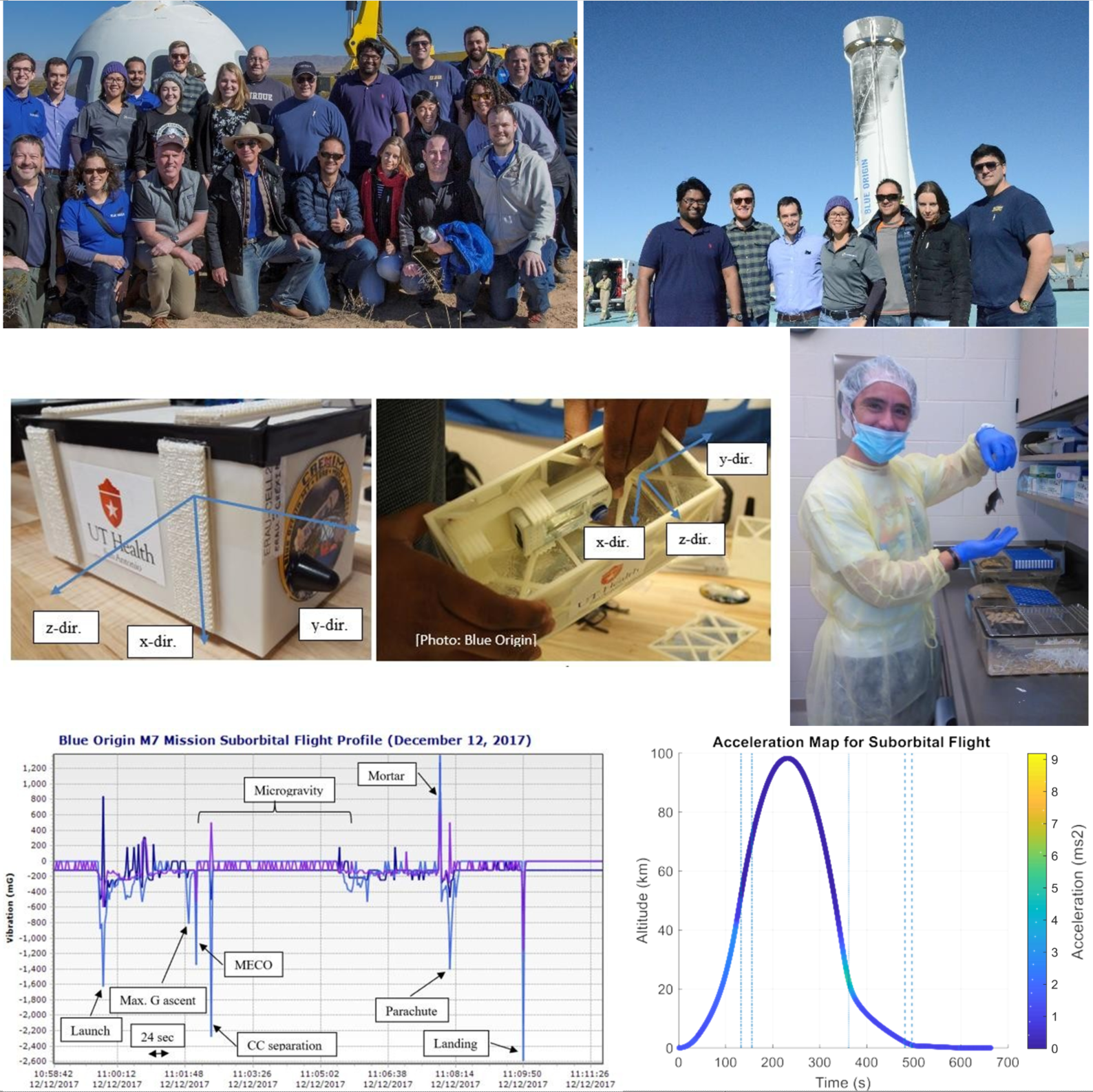Blue Origin’s Suborbital Research: CRExIM
PI Pedro LLanos
This research conducted with Co-Investigators Sathya Gangadharan (ERAU) and Kristina Andrijauskaite (MUSC/UTHSCSA), funded by ERAU’s Faculty Research Development Program, was ERAU's first suborbital payload aboard Blue Origin’s New Shepard launched December 12, 2017. The main aim of this research was to investigate the effect of microgravity on T-cells and to understand how this research could be used to develop T-cell-based therapeutics for cancer patients. A second goal was to monitor the environment that T-cells encountered during suborbital flight. The recorded data will be used to better understand the behavior and functionality of the T-cells when exposed to different stressors.
Suborbital space research is emerging as a popular platform to conduct scientific experiments. It has many advantages compared to research on the International Space Station (ISS), such as cost-effectiveness, rapid turnaround, and an opportunity to valid payloads before investing in more costly space laboratory environments. There have been many initiatives by NASA to accelerate this research, such as the release of the Space Biology Plan for 2016-2025, aimed to investigate the biological effects of long-term exposure to the space environment. Therefore, our scientific findings will build upon current research to expand the knowledge on the microgravity effect on T-cells and will also establish a baseline for us to compare future findings from subsequent suborbital flights aboard various research platforms.
This research project was a joint collaboration between the College of Aviation and the College of Engineering at ERAU and The University of Texas Health Science Center at San Antonio (UTHSCSA) and Medical University of South Carolina (MUSC) who worked on the preparation of the translational science research project aimed at investigating the effect of microgravity on the T-cells of a murine model. Cell Research Experiment In Microgravity (CRExIM) was launched aboard Blue Origin’s New Shepard suborbital vehicle on Tuesday, December 12, 2017, from the West Texas Launch Site in Van Horn, Texas. One of the aims of this science experiment was to assess the effects of microgravity on murine T-cells during suborbital flight. These cells were placed in a NanoLab with a data logger which sensed the acceleration, temperature, and relative humidity during pre-flight, flight, and post-flight operations. Some discrepancies in sensor measurement were noticed and these errors were attributed partly to the difference in sampling rates and partly to the different location of the sensors, which made it difficult to obtain highly accurate measurements of the accelerations and to correlate both sets of data. This research provides setbacks and lessons learned which made our team find new alternatives while meeting all milestones as mandated by NanoRacks and Blue Origin. This research highlights these alternatives which lead to the success of the mission and gives recommendations that will enable customers to alleviate some of these challenges in future flights.
Preliminary results suggest that suborbital space flight modulated the expression of certain subpopulations of T-cells, especially CD4+ and CD8+ cells. Thus, we have also observed the functional differences between the flown T-cells and the ground controls. Our scientific experiments and data analyses were conducted at Dr. Wargovich’s laboratory at UTHSCSA using the flow cytometry core facility. In addition, we have performed a complex cytokine expression analysis using the Invitrogen Mouse Custom ProcartaPlex 5-plex.
Below top: Our team with Blue Origin and NanoRacks teams. Below bottom: Our payload and data collected during the suborbital flight.
Research Dates
01/01/2016 to 01/01/2019
Researchers
Categories: Faculty-Staff



